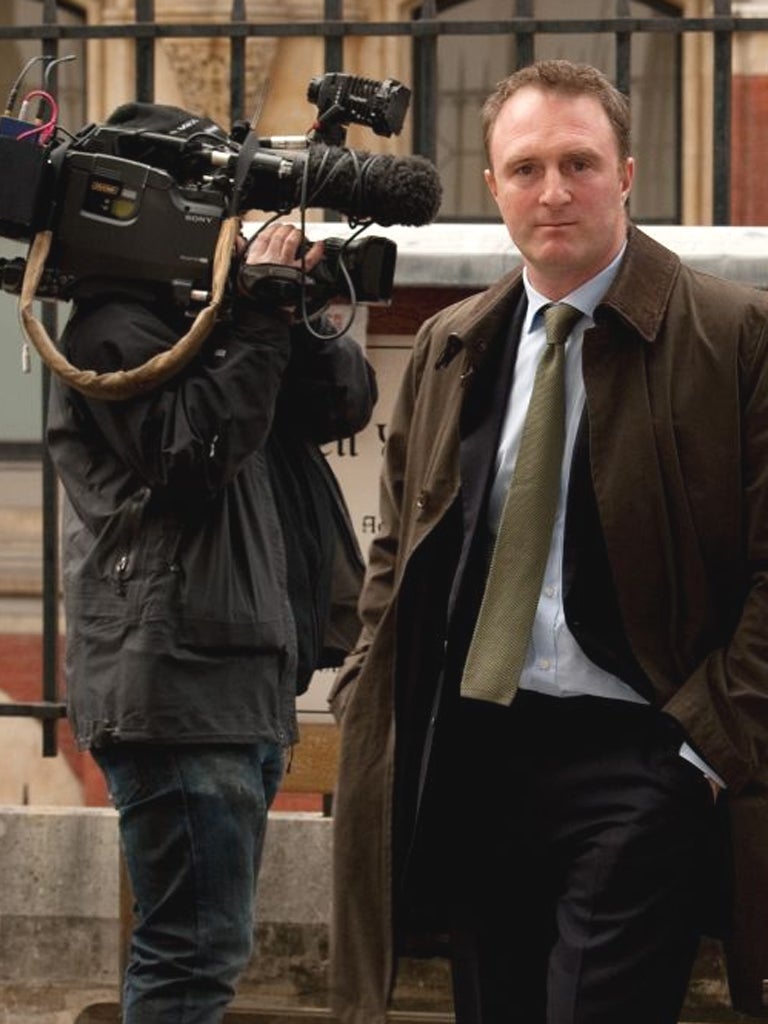Leveson Inquiry recalls editor of The Times over email hacking
James Harding to be asked when paper knew 'Nightjack' account had been illegally accessed

Deepening controversy over The Times's outing of an anonymous police blogger yesterday led to the paper's editor being recalled to give fresh evidence to the Leveson Inquiry into press standards.
As police confirmed an investigation was under way into computer hacking at News International's flagship quality title, sources at the Leveson Inquiry confirmed that James Harding would reappear before it on Tuesday.
Mr Harding is expected to be pressed on exactly when he and other executives on the News International flagship title knew about the illegal accessing of the Hotmail account of the writer of the "Nightjack" blog in 2009.
The article was published after the newspaper won a High Court case against the blogger, Detective Constable Richard Horton, claiming that it had pieced together his identity from references on his blog.
Scotland Yard's Operation Tuleta, which is investigating email hacking on behalf of the News of the World, confirmed its investigation in a letter to the Labour MP Tom Watson, who had asked officers to consider whether there had been a conspiracy to pervert the course of justice at the paper.
In a letter to Mr Watson, Detective Superintendent John Levettsaid: "I write to reassure you that the concerns raised within your letter are under investigation and officers from Operation Tuleta are dealing directly with the victim."
Questions have been growing about how The Times unmasked DC Horton since it emerged last month that Patrick Foster, a former graduate trainee on The Times, had guessed the answers to security questions to hack into his emails.
Following the ruling in its favour by Mr Justice Eady, the paper published an article naming DC Horton, who was disciplined by his force and shut down his blog. The Times argued that the blog contained information that could have identified victims of crime but the decision to "out" DC Horton was greeted with dismay by campaigners.
The Times now faces serious questions about why it did not disclose to the High Court that Mr Foster had accessed the detective's emails. Several senior executives at The Times, including the then managing editor, David Chappell, are believed to have known about the hacking before The Times decided to challenge DC Horton in the courts.
Mr Harding last month told the Leveson Inquiry that he had disciplined a reporter with a written warning following email hacking but did not reveal the journalist's identity or that the hacking was part of a process that led to a published story. In a subsequent letter to the inquiry, Mr Harding confirmed that Mr Foster, now 28, told his managers that he had "sought unauthorised access to an email account" prior to the High Court case but then established Nightjack's real name legitimately using his own sources and publicly-available information from the internet.
The Times editor, who has this week been locked in meetings about the fall out from the Nightjack revelations, did not reveal when he personally found out about the hacking by Mr Foster or the precisely when after the court case the reporter was disciplined.
The Independent understands that Mr Foster initially told executives on The Times newsdesk that he had managed to access Mr Horton's email account and was then told that he could not pursue the story without establishing the blogger's identity legally.
Over a period of seven days, Mr Foster did this and confronted Mr Horton with his findings, prompting the detective to seek the anonymity injunction. During this period several executives, including Mr Chappell, were thought to have been told about the email hacking "issue" and the decision was taken to discipline Mr Foster internally.
It is understood that Mr Harding was consulted about the High Court proceedings but it is not known if he was briefed on Mr Foster's illegal actions.
A News International spokeswoman declined to comment.
Subscribe to Independent Premium to bookmark this article
Want to bookmark your favourite articles and stories to read or reference later? Start your Independent Premium subscription today.
